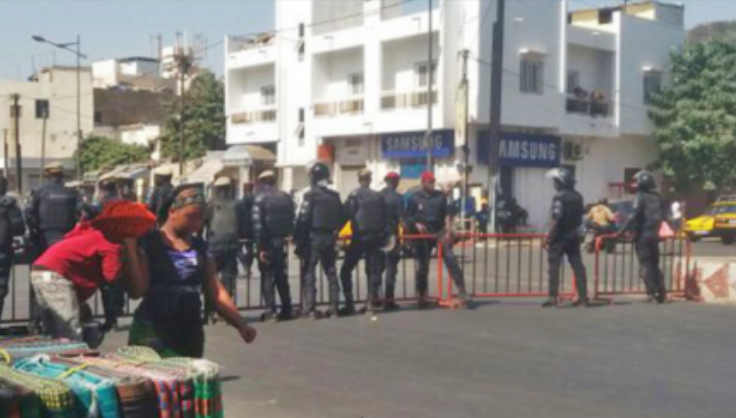Gambiaj.com – (DAKAR, Senegal) – The political climate in Senegal continues to heat up as authorities move to block a planned protest targeting Prime Minister Ousmane Sonko, signaling mounting friction between the government and its detractors.
In a decision that is likely to deepen the political divide, the Prefect of Dakar, Cherif Mouhamadou Blondin Ndiaye, has denied authorization for a demonstration organized by the “Sauvons la République / Doggu Saam Sunu Réew” movement, scheduled for Friday, July 18, 2025.
In his official response, the prefect cited concerns over potential disruptions to public order, particularly the free movement of people and goods within the capital during peak hours.
The protest was set to span from Médina’s post office to the Division of Cybercrime, with a symbolic sit-in to mark its conclusion. However, authorities deemed the timing and route of the march—between 3:00 p.m. and 6:00 p.m.—untenable for urban stability.
At the heart of the protest was a call for the resignation of Prime Minister Sonko, whom opponents within the movement accuse of leading the country into economic turmoil and political repression.
Spearheaded by figures such as Diaraf Sow, Abdou Mahi Gueye, and Ousmane Ndiaye, the movement encompasses a broad coalition of political parties, civil society organizations, journalists, and traditional leaders. Their grievances, outlined in a formal letter to local authorities, are sweeping.
According to the movement, Sonko’s policies have “ruined the economy,” frightened off investors, and worsened living conditions for ordinary Senegalese. They describe his leadership as authoritarian, accusing him of co-opting the judiciary and regulatory institutions to silence dissent, intimidate the press, and harass opposition voices.
One of the more controversial charges against the Prime Minister involves public remarks in which he allegedly referred to certain citizens as “fumiers” (scum), an insult seen by critics as emblematic of his confrontational style and disregard for democratic decorum.
The organizers further accuse Sonko of disrespecting both the presidency and the judiciary—institutions they argue are vital for national stability.
While the government’s decision to deny the protest on logistical grounds may seem procedurally sound, it raises critical questions about political space and democratic freedom in Senegal. Critics argue that the refusal is part of a broader pattern of stifling dissent under the guise of public order.
In recent months, there has been an uptick in public complaints about shrinking civic space, even as the Sonko-led government continues to portray itself as a reformist administration committed to national renewal.
The aborted protest also reveals growing fractures in Senegal’s body politic, especially as dissatisfaction with the government’s handling of the economy and governance style mounts. While Sonko still commands a loyal base, increasingly vocal segments of civil society and political opposition view his administration as a liability to democratic progress.
Whether this protest ban will defuse or inflame tensions remains to be seen. But what is clear is that Senegal is entering a volatile period where public sentiment, government policy, and civil liberties are clashing more visibly—and more dangerously—than ever before.










